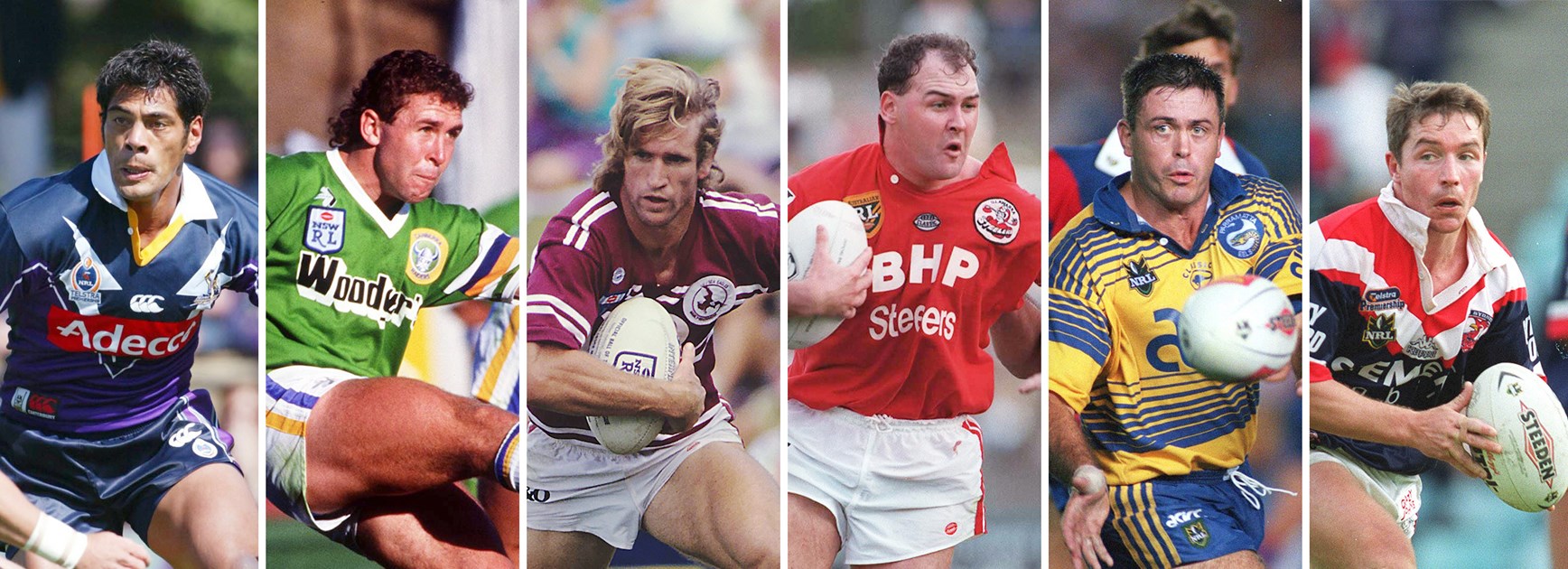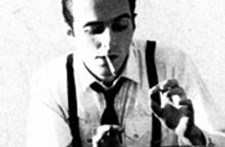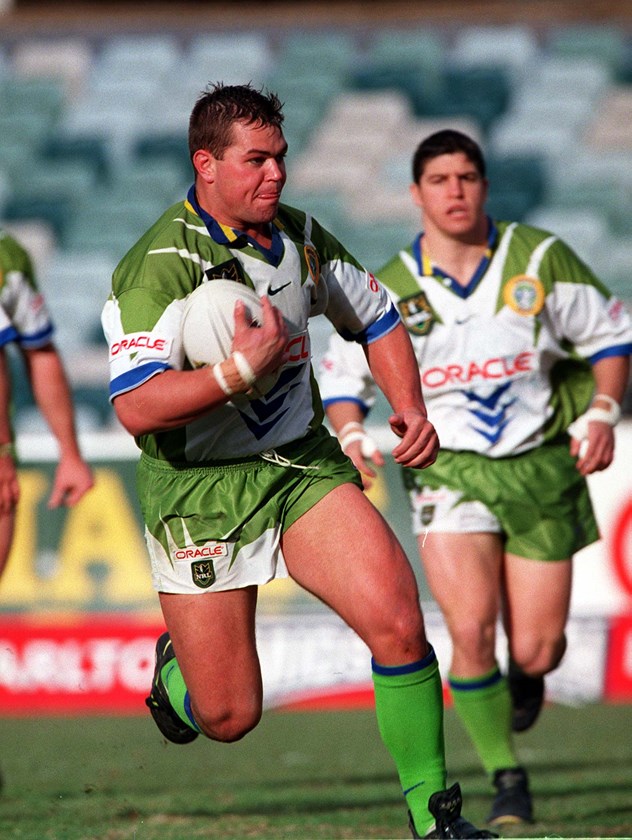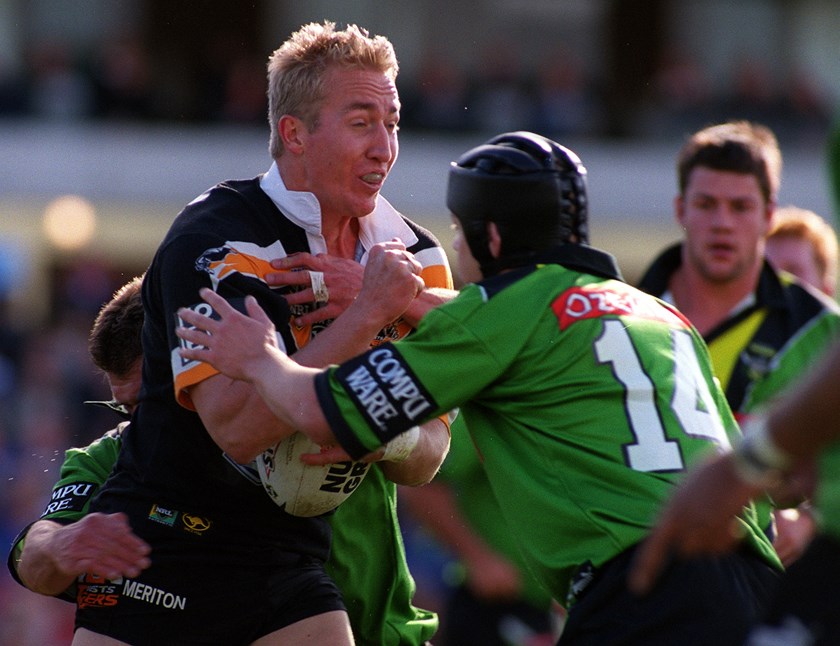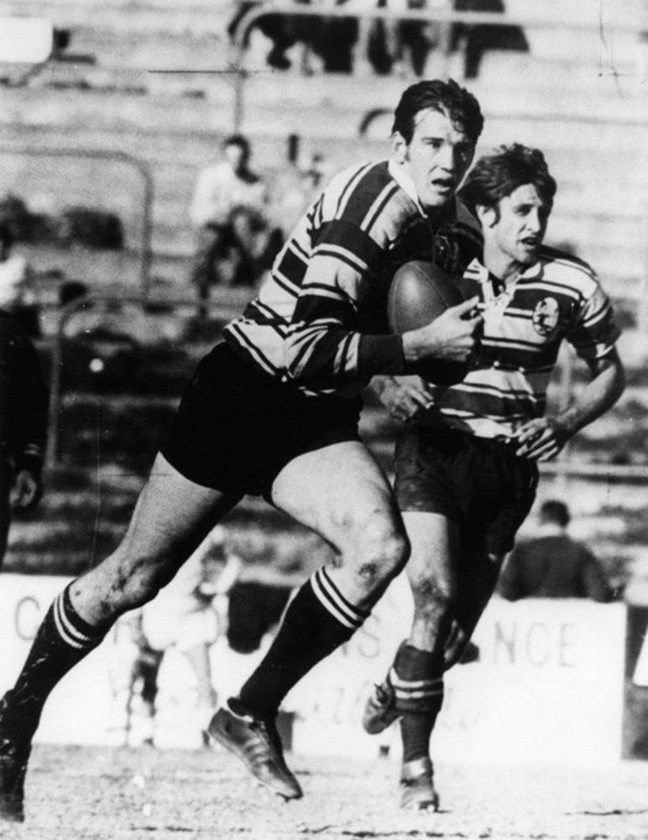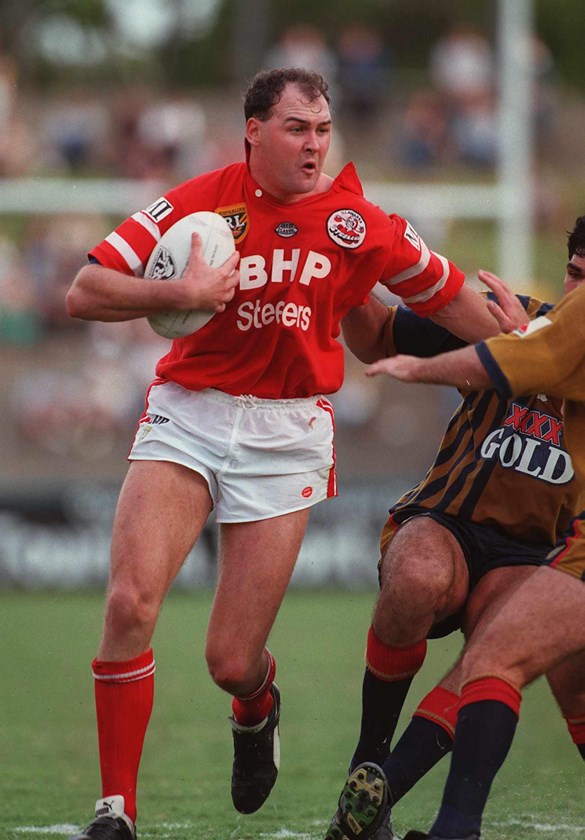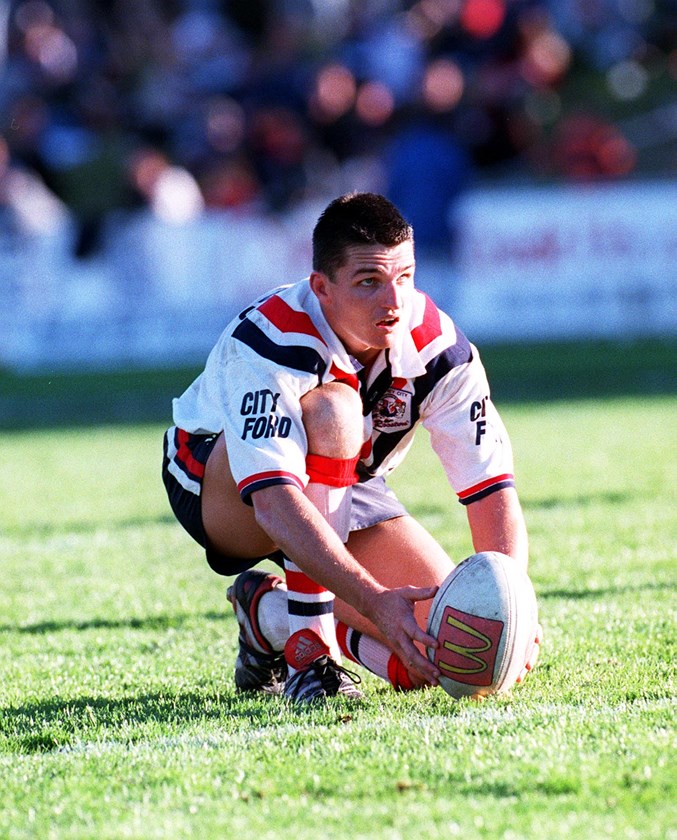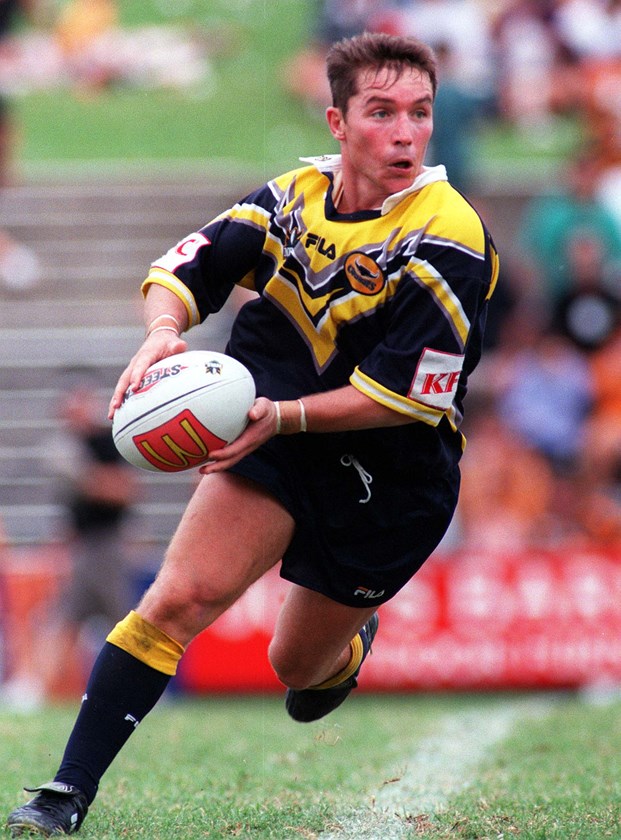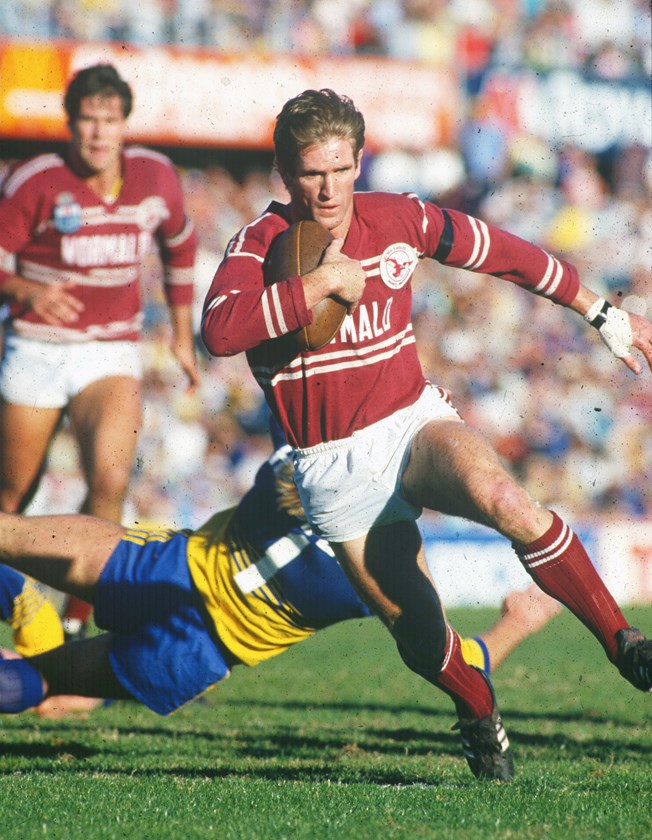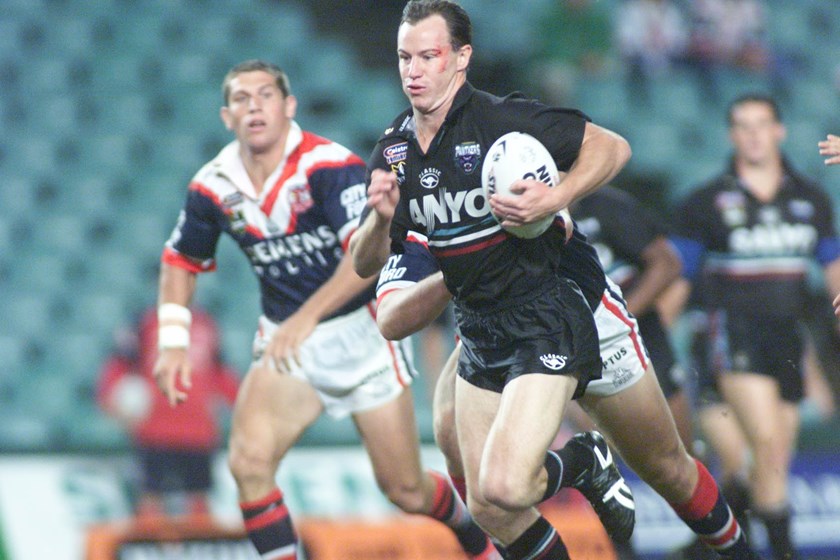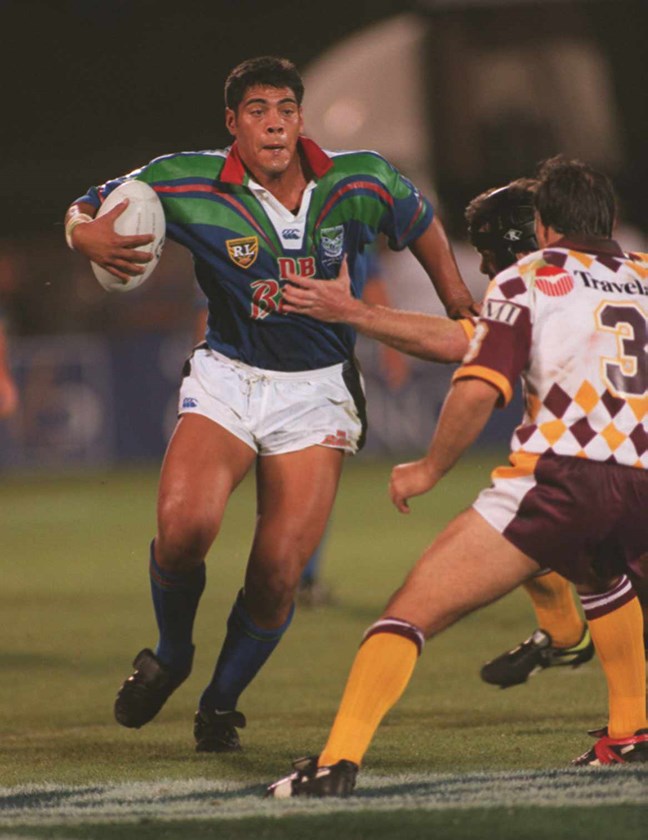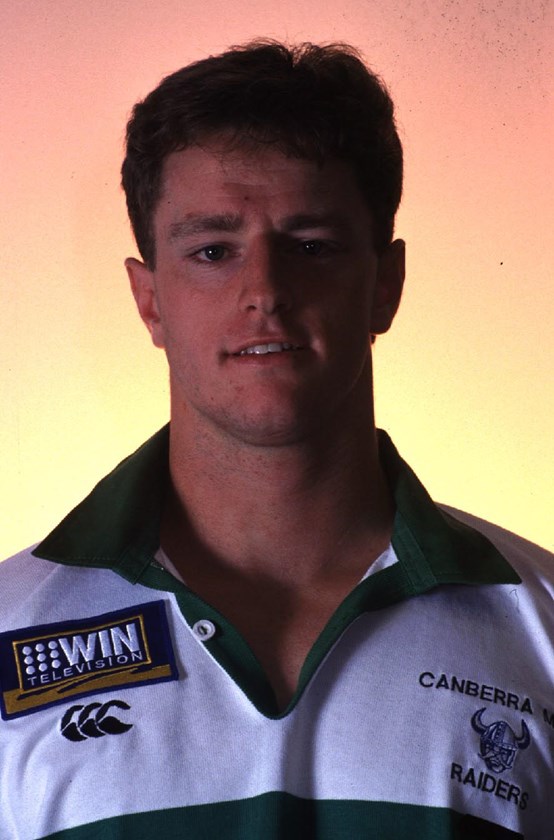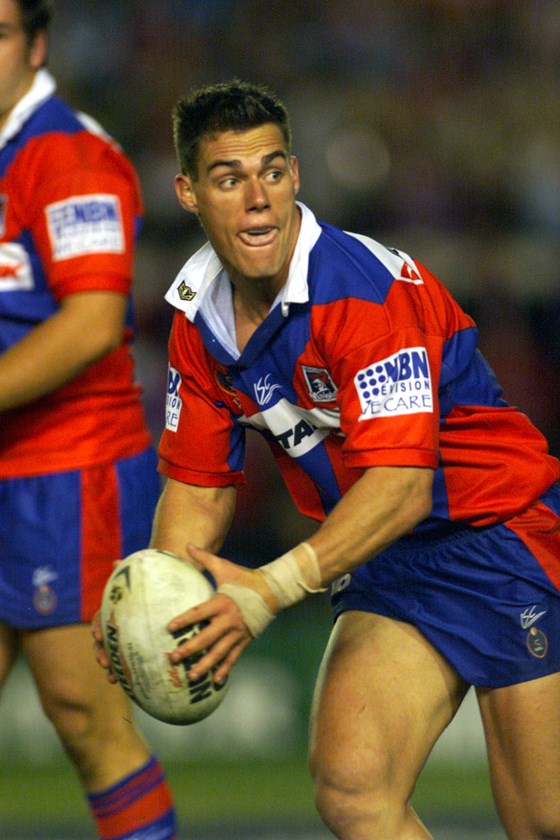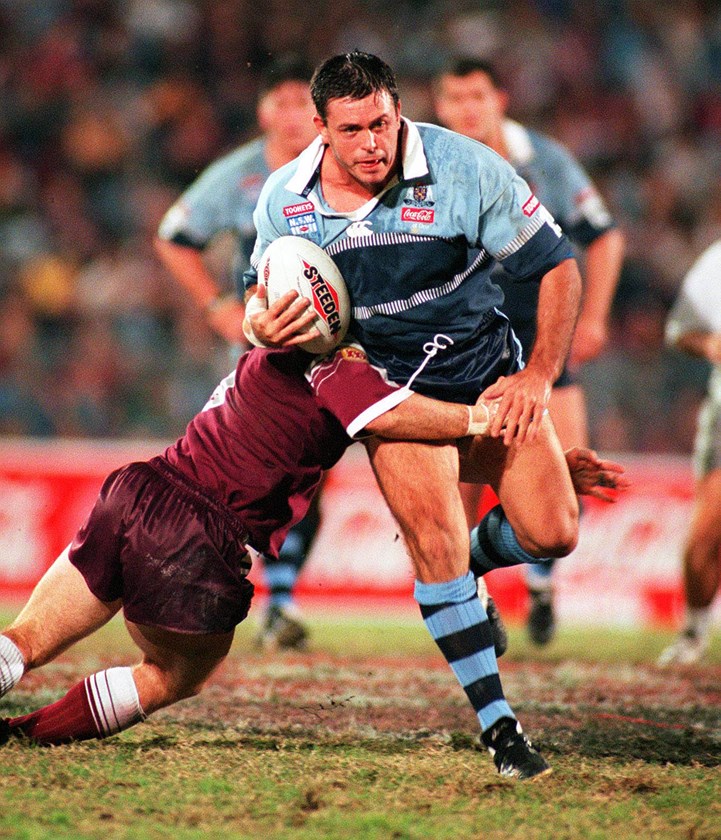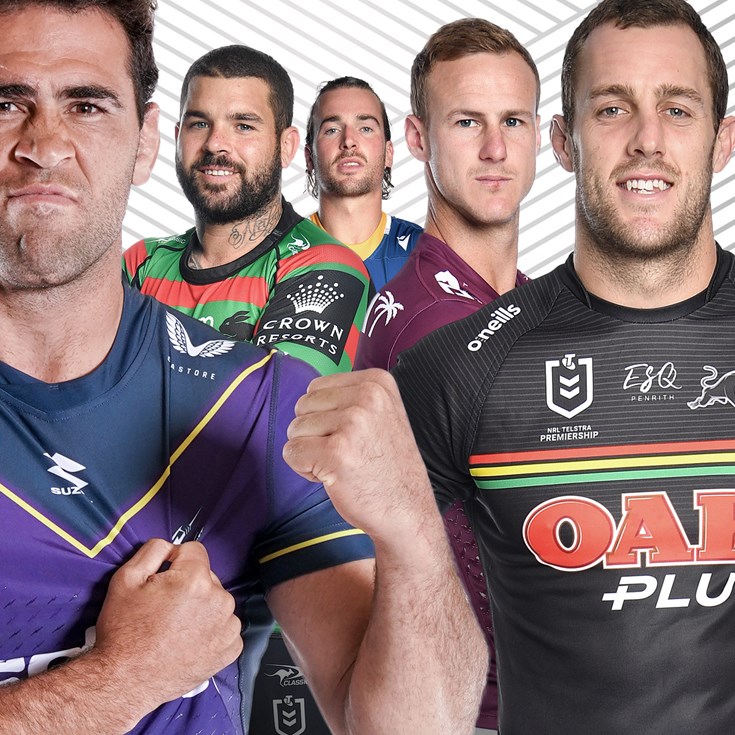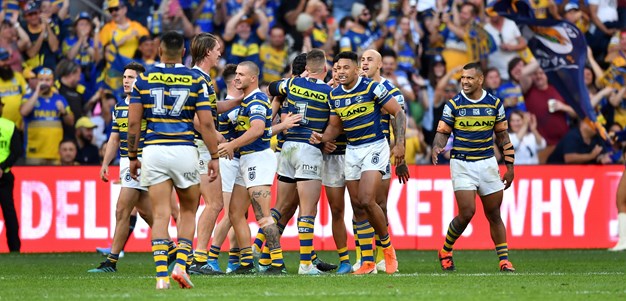“What would you know? You’ve never played the game.”
Every sports journalist has heard that comment at least once during their career (unless of course they did play the game.)
So how good were the current crop of NRL coaches at playing the game? Pretty damn good as it turns out.
We’ve gone through the playing records and selected a team that, with the players at their peak, would give any current NRL side a run for their money.
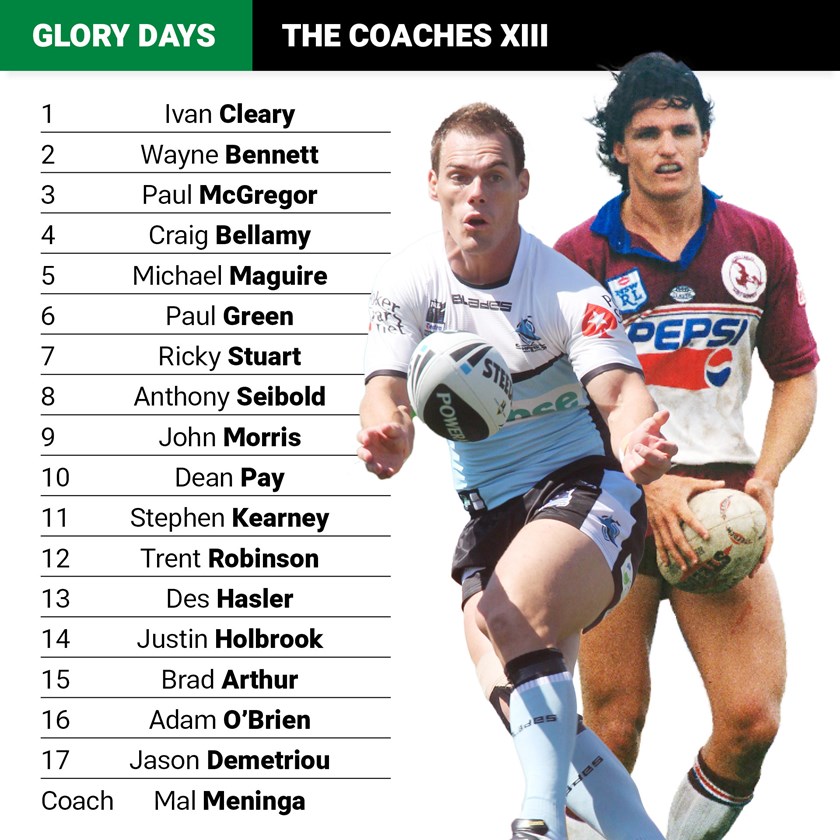
Fullback
Ivan Cleary (Panthers)
Cleary was a prolific scorer who probably would have racked up more points during his career had he not spent two years at North Sydney where Jason Taylor was the first-choice goal-kicker.
A versatile back, he spent the majority of his career at fullback or centre for Manly, North Sydney, the Roosters and Warriors.
It looks like you may be using adblocking software to view this site.
Many features on the site, such as video playback, may not work properly when using adblocking software.
Please whitelist our domain or disable your adblocker to access all features and videos.
Ivan Clearys playing stint at the Warriors
In 1998 at the Roosters he set an individual record for a season with 284 points and in his final year in 2002 at the Warriors he set a club record of 242.
“My highlight was making my debut for Manly,” Cleary told NRL.com.
“I remember so much about it, which I guess makes it my greatest memory also. I was still in shock well into the night after the game that I had actually played first grade.”
Career milestones: First-class games: 186 games (64 tries, 553 goals, 1 field goal: 1363 points).
Wingers
Wayne Bennett (Rabbitohs)
Despite his reluctance to play on the wing, see below, "the supercoach" takes one for this all stars team.
Lost in the mists of time is that Bennett plied his trade in the Brisbane Rugby League for Brothers, Ipswich and Souths Logan. A fullback, winger or centre, he was selected for Queensland on seven occasions.
He was also made the Australian squad to tour New Zealand in 1971 and although he didn’t play a Test he did represent Australia in two games on the trip.
Bennett also spent a season in England playing for Huddersfield in 1972-73.
“It was a wonderful experience for me over here. I played terrible, though. I’m still disappointed with the way I played here,” Bennett told The Yorkshire Post in 2018.
“They put me on the wing and I hated playing on the wing.”
Bennett scored three tries for the Fartowners.
Career milestones: First-class games: 16 (3 tries). National: 2 tour games. Queensland Firsts: 7.
Michael Maguire (Wests Tigers)
The first Adelaide Rams player to make the list, in fact Maguire was in their first Super League match against North Queensland in 1997.
Maguire could obviously play, making his debut from the bench for his hometown Raiders as an 18-year-old in 1992 in a team that featured Raiders greats Mal Meninga, Ricky Stuart, David Furner, Steve Walters and Brett Mullins.
“I played outside Mal [in that game]. I was 79 kilos and I think Mal was about 110,” Maguire said.
Naturally a centre, Maguire also played on the wing, five-eighth and at lock.

After a season with the Rams, he returned to the capital, however, injury cut short his playing career at just 23.
“The opportunity to play in some of those great Raiders team set me up on my way to a coaching career,” he said.
“It taught me a lot to play and train alongside some of the best players ever and was a platform that helped me achieve as a coach.”
Career milestones: First-class games: 16 (5 tries).
Centres
Paul McGregor (Dragons)
He may always appear to be under pressure as coach of the Dragons, but few can fault Mary’s playing achievements.
McGregor played lower grades with Illawarra in 1989, but the following year returned home to the Dapto Canaries before the Steelers were able to lure him back in 1991. A season later he was starring as centre for NSW in their 2-1 Origin series win.
It looks like you may be using adblocking software to view this site.
Many features on the site, such as video playback, may not work properly when using adblocking software.
Please whitelist our domain or disable your adblocker to access all features and videos.
McGregor crosses in semi-final win over Dragons
Despite an injury-plagued career, McGregor continued to be a mainstay of the Blues and also gained national representation.
He captained St George Illawarra in their grand final appearance against Melbourne in 1999 and in 2011 was named at centre in Illawarra Rugby League District’s Team of the Century along with other luminaries Graeme Langlands, Harry Wells and Bob Fulton.
"When you are playing you really don't afford yourself the opportunity to reflect enough on your achievements. That comes as your career winds down and as you become older; when you really begin to appreciate the friendships, the sacrifices and the memories,” McGregor said.
“You even sometimes use yourself as a yardstick, as far as how you would measure up against the current crop of NRL players," he laughed.
"The only reason I played for the Steelers' reserve grade in 1989 is because the local competition weren't going to let me play for Dapto unless I filled in for Illawarra ... 18 months later, I made my first-grade debut and after five games I represented the City Firsts team against the boys from the bush – at the time City Firsts was a best of the rest team of those who didn't feature in the traditional City versus Country fixture that year.
"It was a whirlwind period that snowballed into the 1992 season – as I made my State of Origin debut after just 19 first-grade games – and eventuated into a career that I look upon proudly."
Career milestones: First-class games: 158 (57 tries). Tests: 2. State of Origin: 14.
Craig Bellamy (Storm)
Craig Bellamy was a one-team man playing his entire career with the Raiders. Bellamy did the hard yards with the Green Machine, being there at the start in 1982 and suffering some of their debut-season hammerings – 54-3 v Eels, 45-0 v Steelers, 55-15 v Roosters, 61-21 v Sea Eagles.
"Bellyache" put the ute into utility, playing at fullback, winger, centre, five-eighth and lock for the Raiders.
His perseverance was rewarded when he was a member of Canberra’s grand final-winning squad in 1990.
Career milestones: First class games: 149 (46 tries). Premierships: 1990.
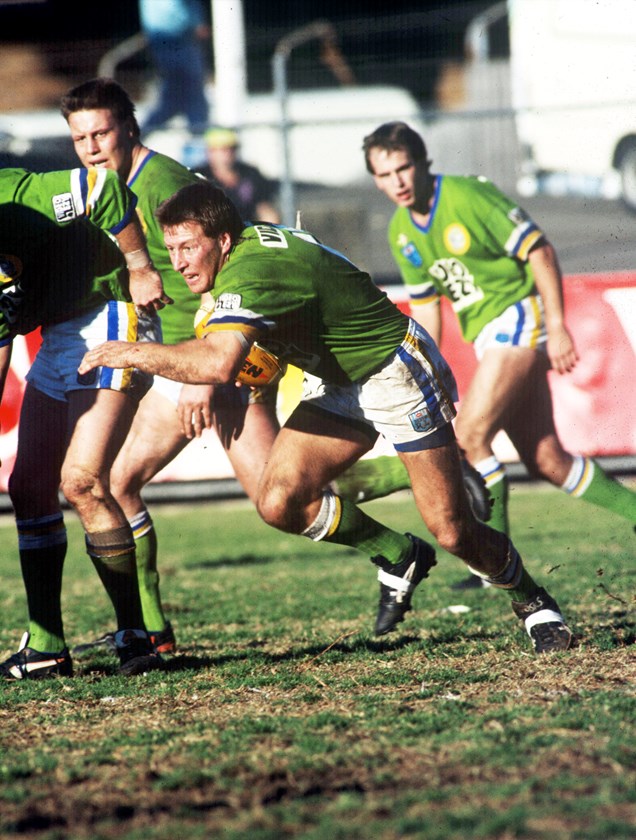
Five-eighth
Paul Green (Cowboys)
Green burst onto the NSWRL scene following a stellar start to his career in Brisbane for the Easts Tigers.
A skilled halfback, he signed with Cronulla and in only his second season in 1995 he was awarded the Rothmans Medal.
When Cronulla joined Super League, Green was selected twice for their Queensland and Australian teams.
He left Cronulla following the 1998 season and played for the Cowboys (1999-2000), Sydney Roosters (2001-02), Eels (2003) and Brisbane (2004).
"The game has given me so much. I have been through the highs and lows, the wins losses and injuries so I have all of those experiences to draw on," Green said.
"I am grateful for the lessons it has taught me in life which I can now hopefully pass on to the players that I coach.
"The game has allowed me to travel the world and I have met many different people and made some long-lasting friendships which has been a highlight."
Career milestones: First-class games: 162 (37 tries, 3 goals). Tests: 2 (Super League). State of Origin: 10 (3 Super League). Rothmans Medal: 1995.
Halfback
Ricky Stuart (Raiders)
Stuart achieved just about every accolade in the game and was inducted into the Hall of Fame in 2018.
A three-time premiership winner with the Raiders who just failed to achieve 300 first-class games, ending his career on 296 appearances.
It looks like you may be using adblocking software to view this site.
Many features on the site, such as video playback, may not work properly when using adblocking software.
Please whitelist our domain or disable your adblocker to access all features and videos.
The best of Ricky Stuarts Origin career
Also responsible for the most famous zero to hero moment in the international game in the second Test of the 1990 Ashes series when he gave up an intercept try that allowed Great Britain to level the scores before producing an 80-metre bust that resulted in Mal Meninga scoring a last-minute match-winning try.
“I am very fortunate that I played in an era at the Raiders that had wonderful achievements and included so many great memories,” Stuart said.
“I am so fortunate that the friendships and memories established during this time will be with me forever."
Career milestones: First-class games: 296 (48 tries, 7 goals). Premierships: 1989, 1990, 1994. Tests: 9. State of Origin: 14. Dally M Player of the Year: 1993. Dally M Halfback of the Year: 1990, 1993. Clive Churchill Medal Winner: 1990. Rothmans Medal Winner: 1993. Hall Of Fame: 2018.
Lock
Des Hasler (Sea Eagles)
Plenty think of Des as a Silvertail due to his playing and coaching career at Manly, but Hasler began at Penrith in 1982 before heading to the peninsula under the guidance of Bob Fulton.
Hasler was one of the fittest players in the game during his era and his versatility and football nous made him an important member of teams at club, state and international level.
It looks like you may be using adblocking software to view this site.
Many features on the site, such as video playback, may not work properly when using adblocking software.
Please whitelist our domain or disable your adblocker to access all features and videos.
Hasler scores in final appearance for Blues
He will undoubtedly be the only rugby league player to have their biography (The Utility Player) written by a Booker Prize winner - Thomas “Blow that whistle ref” Keneally.
“Rugby league has been unbelievably good to me in the 40 or so years that I have been involved as a player and coach,” Hasler said.
“Where has that time gone?”
Career milestones: First-class games: 312 (93 tries, 1 goal). Premierships: 1987, 1996. Tests: 12. State of Origin: 12. Dally M Lock of the Year: 1991.
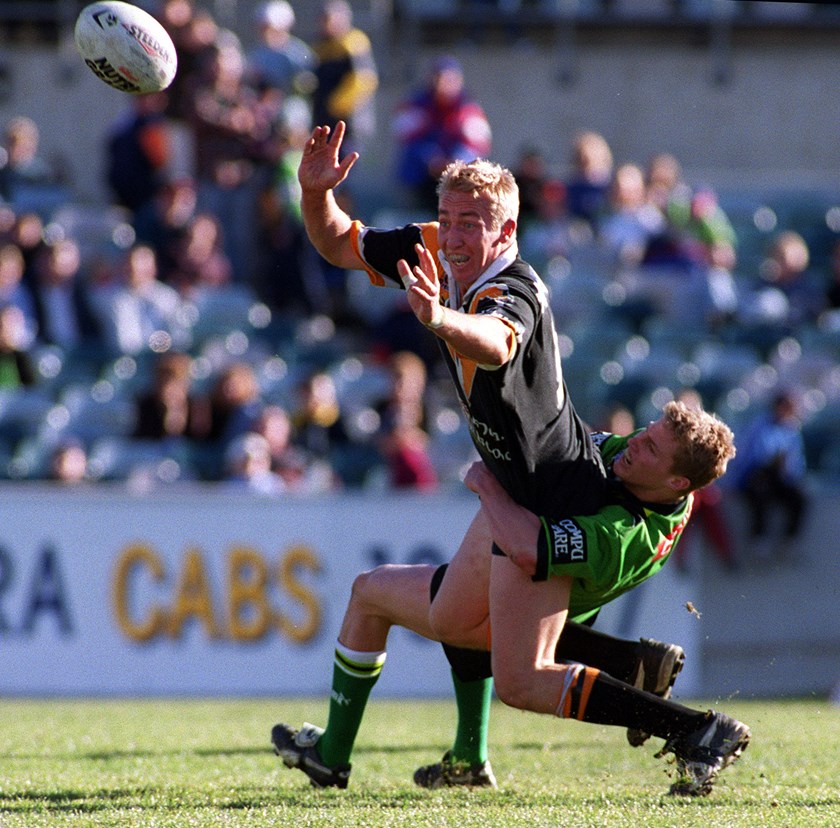
Second-rowers
Trent Robinson (Roosters)
Robinson played with his current club in lower grades between 1995 and 1998 before moving to the Wests Tigers (2000-01) and making his first-grade debut. He spent a season with Parramatta (2002) before heading to France where he continued playing for Toulouse Olympique.
At Toulouse he played more than 70 games between 2002-05, before he hung up the boots and became their coach.
“While my NRL playing career was brief, I’m fortunate for the opportunities rugby league gave me as a player both in Australia and France,” Robinson said.
“Over the years, I was able to learn from some great mentors and formed strong friendships with people involved right across our game, which I value to this day.“
Career milestones: First-class games: 7 (1 try).
It looks like you may be using adblocking software to view this site.
Many features on the site, such as video playback, may not work properly when using adblocking software.
Please whitelist our domain or disable your adblocker to access all features and videos.
Stephen Kearney: Life as a Storm enforcer
Stephen Kearney (Warriors)
Kearney was an uncompromising forward who burst on to the scene for Western Suburbs in 1992.
His playing career last until 2005 when he finished up with Hull FC in the Super League.
Kearney was a mainstay of the Kiwi national team, becoming their youngest captain at 21 and playing an incredible 45 Tests.
Career milestones: First-class games: 293 (42 tries). Premierships: 1999. Tests: 45.
Props
Dean Pay (Bulldogs)
A no-nonsense forward, he also possessed good ball skills which helped him stand out from the pack. He started his career at Canterbury in 1989 and by 1994 he had achieved NSW Origin and Australian selection.
After seven years and 108 games at Canterbury, including winning the premiership in 1995, Pay switched to Parramatta until retiring at the end of 1999, aged 30.
Although more associated with the Bulldogs, Pay was named at prop in the Parramatta Team of the Century announced in 2002 beating out players the quality of Brian Hambly, Denis Fitzgerald, Ron Hilditch and Graham Olling.
It looks like you may be using adblocking software to view this site.
Many features on the site, such as video playback, may not work properly when using adblocking software.
Please whitelist our domain or disable your adblocker to access all features and videos.
Man of the match Pay speaks after win over Raiders in 1994
“I had eight years at Canterbury and four at Parramatta and enjoyed every second I had at both clubs,” Pay said.
“I met a lot of great people along the way. Obviously the highlight was winning the competition in 1995 - great times.”
Career milestones: First-class games: 184 (12 tries, 1 goal). Premierships: 1995. Tests: 9. State of Origin: 12. Dally M Prop of the Year: 1998.
Anthony Seibold (Broncos)
Wanderlust was a feature of Seibold’s playing career – not too many, if any, rugby league players can match his playing path.
Seibold made his reserve-grade debut for the Broncos as a 17-year-old in 1992 and spent three seasons with the club and captained a Queensland under-19 side which featured Wendell Sailor and Brad Thorn.
He travelled to France, playing with St Esteve during 1996-97, winning a title.
In 1997 he returned to Australia, signed with the Raiders and made his first-grade debut the following season in the front row.
He headed back to Europe in 1999 and played two seasons with the London Broncos in Super League.
Returning to Brisbane after suffering a knee injury he played for the Ipswich Jets in 2002, before another trip to the UK to play for Hull Kingston Rovers in 2003-04.
I loved playing rugby league from when I was six years old.
Anthony Seibold
After returning to Brisbane he captained the Broncos' feeder team, the Clydesdales, in the 2005 Queensland Cup.
His coaching career began with an assistant’s job at the Celtic Crusaders, however he dusted off the boots and played the second half of the season.
“I loved playing rugby league from when I was six years old. I played until I was 31 and had some great experiences having played NRL in Australia, Super League in the UK and in the Elite French competition,’’ Seibold said.
“I met great people and made many friends along the way. The different experiences helped shape me as a person.”
Career milestones: First-class games: 69 (6 tries).
Hooker
John Morris (Sharks)
Morris was also one of the most durable players during his career which started in Newcastle in 2001 and ended with Cronulla in 2014 with side trips to Parramatta and the Wests Tigers.
Plenty of fans don’t realise he is a member of the 300-game club and at the time, he achieved that mark faster than any other player. During his time with the Tigers he did not miss a game, playing 72 matches straight.
It looks like you may be using adblocking software to view this site.
Many features on the site, such as video playback, may not work properly when using adblocking software.
Please whitelist our domain or disable your adblocker to access all features and videos.
Morris nominated for Sharks team of the half century
Known mostly as a halfback or five-eighth, Morris played more than 100 games at hooker and was selected in Country Origin teams twice.
Morris started 14 games for the Knights in 2001 when they won the premiership and was the 18th man for the grand final.
Career milestones: First-class games: 300 (49 tries, 10 goals).
Interchange
Justin Holbrook (Titans)
Unfortunately for this halfback, he started his rugby league career in Newcastle when they had a No.7 by the name of A Johns at the club.
He managed five first-grade appearances for the Knights in 1999 and 2000 before moving to Penrith in 2001 where he found himself behind Craig Gower, and then finished his NRL career at the Roosters in 2002.
He went on to captain-coach the Dapto Canaries from 2003-07.
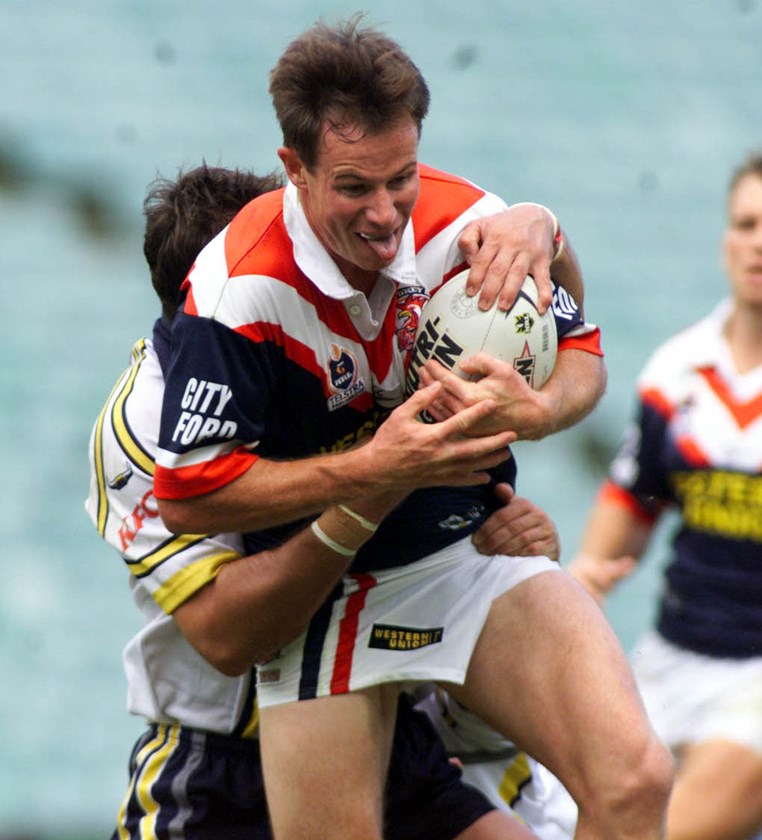
Of his top-flight playing days, Holbrook told the Sydney Morning Herald: "I knew what to do but I couldn't do it quick enough."
He obviously impressed with his game knowledge during his playing days, with 2002 Sydney Roosters teammate Justin Hodges telling NRL.com in 2019: "He was smart. The one thing that I realised pretty quickly was that he was highly intelligent and understood the game at a high level … he’s got a very good footy brain.”
Career milestones: First-class games: 17 (4 tries, 23 goals).
Brad Arthur (Parramatta)
Arthur played in the Parramatta juniors but was unable to break into the senior squad.
"I started playing in the halves with Parramatta SG Ball and moved to second row for four years, first with Parramatta under 21s and then in reserve grade for Penrith,” Arthur said.
He told the Daily Telegraph in 2012: "Royce Simmons was coaching Penrith when I played there for a few seasons before he advised me that I probably wasn't going to make it in first grade. It was tough to hear, but I prefer honesty."
Arthur played the rest of his career as a back-rower, spending two years as captain-coach for Batemans Bay in the legendary Group Seven competition on the South Coast in 2002, before becoming captain-coach with Cairns Brothers where he played in six grand finals, winning four of them.
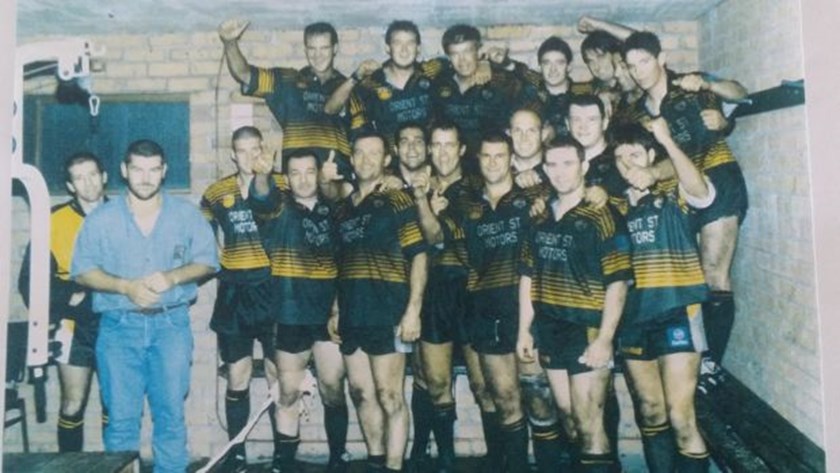
Adam O’Brien (Knights)
The rookie Newcastle coach’s career has closely been aligned with Brad Arthur.
The Batemans Bay junior was a part of Arthur’s Group Seven premiership-winning team and he also played for the current Parramatta coach when he headed north to Cairns.
O’Brien, a lock and five-eighth, played for Batemans Bay between 1996-02, headed to Cairns in 2003, returned to the Bay in 2004 before heading north again to finish his playing career in 2006, winning a premiership in 2005.
“I had a knee reconstruction and a shoulder injury and I missed a large chunk playing-wise but certainly my time spent [at Brothers] was something that I’m very grateful for,” O’Brien told the Cairns Post in 2017.
Jason Demetriou
We’re bending the rules to make a 17-man squad, but as Demetriou has been announced as the South Sydney coach from 2022 we say he qualifies for a spot.
Demetriou, a five-eighth and centre, grew up in Sydney but played his top-grade career in England, playing from 2000 to 2011.
He joined the Wakefield Trinity Wildcats in 2004 and played there for seven seasons, five as captain, and he won the player of the year award in 2006 and 2007.
Career milestones: First-class games: 243 (68 tries, 3 goals)
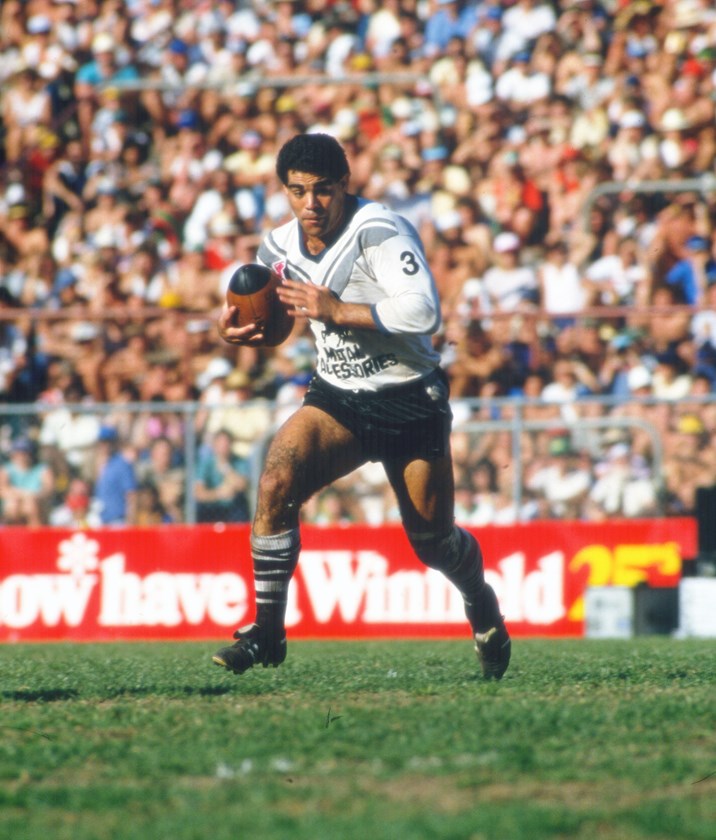
Coach
If only Phil Gould was still at the Panthers then he’d make this a tough decision. However, we’ll go with Kangaroos coach and Immortal Mal Meninga to take the reins of our side.
He can have the job of selecting the captain.
Coaching record: Internationals: 30 (25 wins, 4 losses, 1 draw). Representative: 30 (20 wins, 10 losses. Club: 138 (66 wins, 57 losses, 2 draws)
Footnote: For the exercise, first-class games are a combination of NRL/NSWRL first grade, UK division one and Challenge Cup matches.
